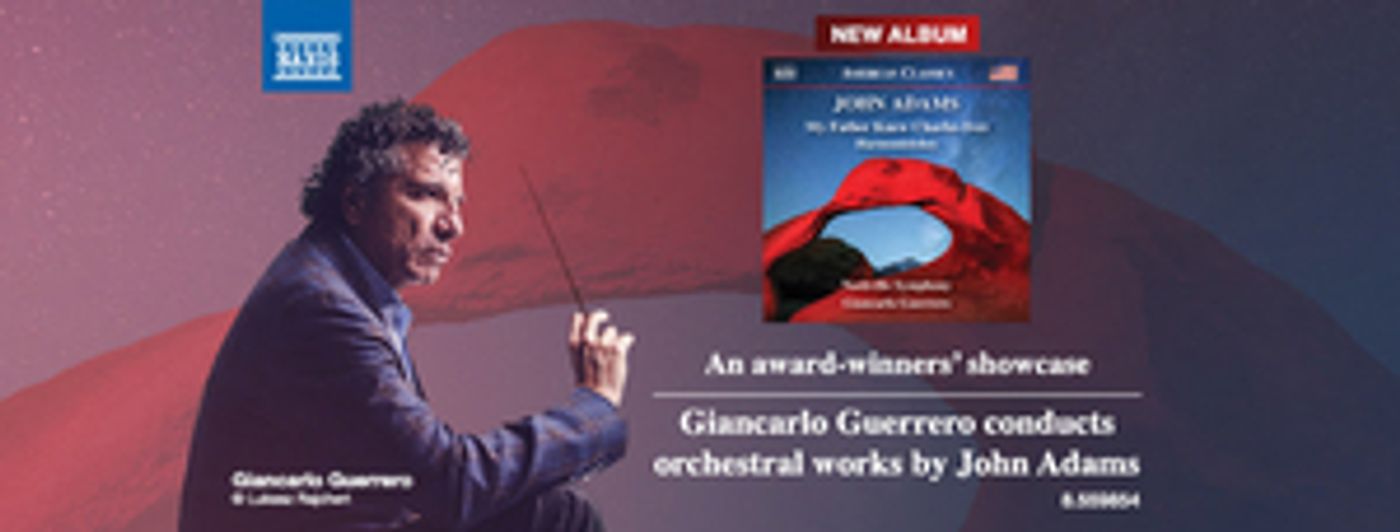Giancarlo Guerrero, Nashville Symphony's JOHN ADAMS: My Father Knew Charles Ives
The album will be released on January 15, 2020.

On January 15, 2020, Naxos will release a new album from Giancarlo Guerrero and the Nashville Symphony including two major works by Pulitzer and Erasmus Prize-winning American composer JOHN ADAMS: My Father Knew Charles Ives and Harmonielehre (Naxos 8.559854).
John Adams' works stand out among contemporary classical compositions for their depth of expression, brilliance of sound, and the profoundly humanist nature of their themes. Adams describes My Father Knew Charles Ives as "an homage and encomium to a composer whose influence on me has been huge." Harmonielehre was a deliberate move by Adams to expand his musical language beyond Minimalism, keeping its energetic pulse but embracing the rich tonal resources of the past to create a work that has accrued an aura of timelessness. My Father Knew Charles Ives was originally commissioned by the San Francisco Symphony in 2003. John Adams admits his father never met the iconoclastic New England composer, much less knew him personally. In his memoir, Hallelujah Junction: Composing an American Life (Farrar, Straus and Giroux, 2008), he notes similarities between his father and George Ives, Connecticut bandmaster and father of Charles: "Both fathers were artistic and not particularly successful in their conventional business lives. Both were dreamers, perhaps not fully disciplined or motivated, but capable of inspiring their sons. Both loved small-town New England life and aligned themselves with the individualist, skeptical philosophy of Thoreau." Each of the work's three movements, Concord; The Lake; and The Mountain symbolize "a piece of (Adams') musical autobiography.""I am very proud that from the beginning of my tenure with the Nashville Symphony, we have been at the forefront of championing the works of living American composers," says conductor and Nashville Symphony Music Director Giancarlo Guerrero. "But I have to say that my interest in American music started back in my college years when I first heard John Adams' Harmonielehre. This incredible work sparked my curiosity and pushed me to continue exploring all the amazing repertoire by other living composers. John Adams has remained a constant presence in my regular programming. He was in many ways, my first introduction to the wonders of American music."
This album comes on the heels of three critically acclaimed Naxos American Classics releases from Guerrero and Nashville released over the summer, including the "superb recording of the (Aaron Jay) Kernis Color Wheel and Chromelodeon (ConcertoNet), "splendidly captured" (Gramophone) recording of Tobias Picker's Opera Without Words and The Encantadas, and the GRAMMY® nominated Christopher Rouse Symphony No. 5 - Supplica - Concerto for Orchestra, about which The New Yorker stated, "Abetted by robust performances, the album offers persuasive justification for Rouse's enduring appeal."
An excerpt from the album's Harmonielehre can be heard HERE.
Videos

